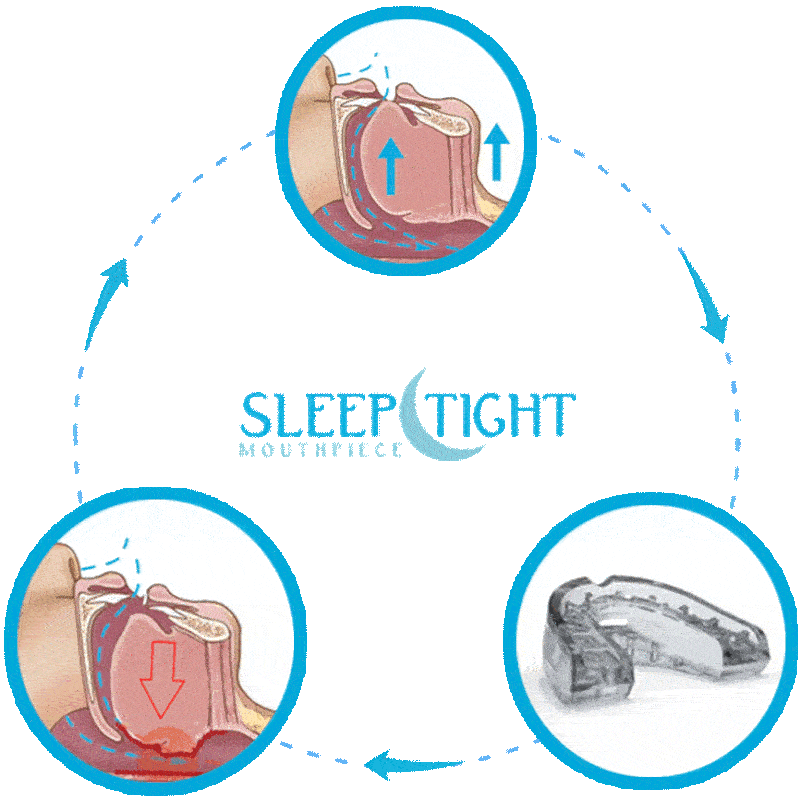Have you ever wondered how your lack of sleep affects your overall health? It’s a question that many people have, and luckily, we have the answers for you. In this article, we’ll dive into the topic of sleep deprivation and its impact on your health. So, if you’re curious to learn more, keep reading!
Lack of adequate sleep can have far-reaching consequences on various aspects of your health. When you don’t get enough sleep, you may find yourself feeling groggy and unable to focus throughout the day. This can affect your productivity at work or school and can even increase your risk of accidents or injuries. Furthermore, sleep deprivation has been linked to a weaker immune system, making you more susceptible to illnesses like the flu or common cold. We’ll explore these effects in more detail later in the article, so stay tuned to discover how you can prioritize getting enough sleep for the sake of your health.

What is sleep deprivation
Definition of sleep deprivation
Sleep deprivation is a condition that occurs when an individual consistently fails to get enough sleep to meet their body’s needs. It is characterized by a lack of sufficient quantity and quality of sleep, which can have detrimental effects on physical, mental, and emotional well-being.
Causes of sleep deprivation
There are several factors that can contribute to sleep deprivation. These include:
-
Lifestyle factors: Busy schedules, long work hours, and social commitments can often result in individuals sacrificing their sleep time in order to meet their obligations.
-
Environmental factors: Noisy or uncomfortable sleeping environments can disrupt sleep and lead to deprivation.
-
Medical conditions: Conditions such as insomnia, sleep apnea, and restless leg syndrome can prevent individuals from getting the sleep they need.
-
Psychological factors: Stress, anxiety, and depression can interfere with sleep and contribute to sleep deprivation.
Common symptoms of sleep deprivation
Sleep deprivation can manifest in a variety of ways. Some common symptoms include:
-
Excessive daytime sleepiness: Feeling excessively tired and struggling to stay awake during the day.
-
Poor concentration and focus: Difficulty staying focused on tasks and reduced ability to concentrate.
-
Irritability and mood swings: Feeling irritable, easily frustrated, and having mood swings.
-
Memory problems: Difficulties with memory and recall.
-
Decreased immune function: Increased susceptibility to infections and illnesses.
-
Impaired physical performance: Reduced coordination, slower reaction times, and decreased physical stamina.
Physical effects of sleep deprivation
Effects on the immune system
Sleep deprivation can weaken the immune system, making individuals more susceptible to infections and illnesses. The lack of quality sleep leads to a decrease in the production of immune cells and antibodies that help fight off pathogens.
Increased risk of chronic diseases
Chronic sleep deprivation has been linked to an increased risk of developing chronic diseases such as obesity, diabetes, and cardiovascular diseases. Lack of sleep disrupts metabolic processes, leading to hormonal imbalances and increased inflammation in the body.
Impact on physical performance
Lack of sleep can negatively affect physical performance. It impairs coordination, reaction times, and overall physical stamina. Athletes, in particular, may experience a decline in their athletic performance due to sleep deprivation.
Mental effects of sleep deprivation
Impairment of cognitive function
Sleep deprivation can impair cognitive function, making it difficult to think clearly, concentrate, and remember information. It can lead to poor decision-making abilities and reduced problem-solving skills.
Mood disturbances
Sleep deprivation can significantly impact mood, leading to irritability, mood swings, and increased emotional sensitivity. It can also contribute to the development or exacerbation of mood disorders such as depression and anxiety.
Increased risk of mental health disorders
Chronic sleep deprivation is associated with an increased risk of developing mental health disorders such as depression and anxiety. Sleep plays a crucial role in emotional regulation, and lack of sleep can disrupt this process, leading to emotional instability.

Impact on productivity and daily functioning
Reduced concentration and focus
Sleep deprivation impairs concentration and focus, making it difficult to stay focused on tasks and complete them efficiently. This can have a negative impact on daily functioning and productivity.
Impaired decision-making abilities
Lack of sleep can negatively affect decision-making abilities, leading to poor judgment and decision-making. It can impair critical thinking skills and increase the likelihood of making mistakes or poor choices.
Negative effects on work performance
Sleep deprivation can have a significant impact on work performance. It can lead to decreased productivity, increased errors, and difficulties in meeting deadlines. It can also affect interactions with colleagues and compromise professional relationships.
Relationship between sleep deprivation and weight gain
Effects on appetite regulation
Sleep deprivation disrupts the balance of hormones that regulate appetite, leading to increased hunger and a preference for high-calorie foods. This can contribute to weight gain and an increased risk of obesity.
Increased cravings for unhealthy foods
Sleep deprivation can increase cravings for unhealthy and high-calorie foods, such as sugary snacks and fast food. These cravings are often driven by hormonal imbalances and can contribute to unhealthy eating habits and weight gain.
Disruption of hormonal balance
Lack of sleep disrupts the balance of hormones in the body, including leptin and ghrelin, which regulate appetite. This disruption can lead to increased hunger, decreased satiety, and a tendency to overeat.
Sleep deprivation and cardiovascular health
Higher risk of hypertension
Chronic sleep deprivation has been linked to an increased risk of hypertension (high blood pressure). Lack of sleep can lead to a disruption in the balance of hormones that regulate blood pressure, putting individuals at a higher risk of developing hypertension.
Increased chances of heart disease
Sleep deprivation is associated with an increased risk of developing cardiovascular diseases, including heart disease. The exact mechanisms behind this relationship are not fully understood, but chronic sleep deprivation is believed to contribute to inflammation, increased blood pressure, and elevated cholesterol levels.
Effects on blood pressure
Lack of sleep can lead to temporary spikes in blood pressure, especially during periods of acute sleep deprivation. These fluctuations in blood pressure can strain the cardiovascular system and contribute to long-term cardiovascular health issues.
Impact on the immune system
Weakened immune response
Chronic sleep deprivation weakens the immune system, making individuals more susceptible to infections and illnesses. Sleep is essential for the production of immune cells and antibodies that help fight off pathogens.
Increased susceptibility to infections
Lack of sleep compromises the immune system’s ability to defend against infections. Sleep deprivation decreases the production of antibodies and immune cells, making individuals more vulnerable to viruses, bacteria, and other pathogens.
Slower healing process
Sleep deprivation can impede the body’s ability to heal and recover from injuries or illnesses. During sleep, the body undergoes essential processes that promote tissue repair and regeneration. Without sufficient sleep, these processes are disrupted, leading to a slower healing process.
Sleep deprivation and mental health
Association with depression and anxiety
Sleep deprivation is closely associated with an increased risk of developing depression and anxiety disorders. Lack of sleep can exacerbate existing mental health conditions and contribute to the development of these disorders.
Worsening of existing mental health conditions
Sleep deprivation can worsen the symptoms and severity of existing mental health conditions. It can lead to increased irritability, mood swings, and emotional instability, making it difficult to manage and cope with mental health challenges.
Impaired emotional regulation
Sleep deprivation affects the brain’s ability to regulate emotions effectively. It can lead to increased emotional reactivity, reduced emotional resilience, and difficulties in managing stress and negative emotions.
Sleep deprivation’s effect on cognitive function
Memory problems
Lack of sleep can impair memory function, making it difficult to retain and recall information. Sleep plays a crucial role in memory consolidation, and sleep deprivation disrupts this process, leading to memory problems.
Reduced creativity and problem-solving abilities
Sleep deprivation can hinder creativity and problem-solving abilities. Lack of sleep impairs cognitive flexibility and inhibits the brain’s ability to generate new ideas and find innovative solutions to problems.
Impaired learning capabilities
Sleep is essential for effective learning and memory consolidation. Lack of sleep can impair learning capabilities, making it difficult to acquire new information and retain knowledge.
Conclusion
Importance of prioritizing sleep
Sleep is a fundamental component of overall health and well-being. Prioritizing sleep is essential for maintaining physical, mental, and emotional health. It is crucial to recognize the importance of getting sufficient quality sleep and to make it a priority in your daily routine.
Potential solutions and strategies to improve sleep
There are several strategies that can help improve sleep quality and quantity. These include:
-
Establishing a consistent sleep schedule by going to bed and waking up at the same time every day.
-
Creating a relaxing bedtime routine to prepare your body and mind for sleep.
-
Creating a comfortable sleeping environment that is dark, quiet, and cool.
-
Avoiding stimulating activities and electronic devices before bed.
-
Managing stress through relaxation techniques such as meditation or deep breathing exercises.
-
Seeking professional help when necessary
If sleep deprivation persists despite making lifestyle changes, it is important to seek professional help. A healthcare provider can help identify underlying causes and provide appropriate treatment options, such as therapy or medication, to address sleep-related issues.
By prioritizing sleep and adopting healthy sleep habits, you can optimize your physical and mental health, improve productivity, and enhance overall well-being. Remember, a good night’s sleep is essential for a healthier and happier life.



